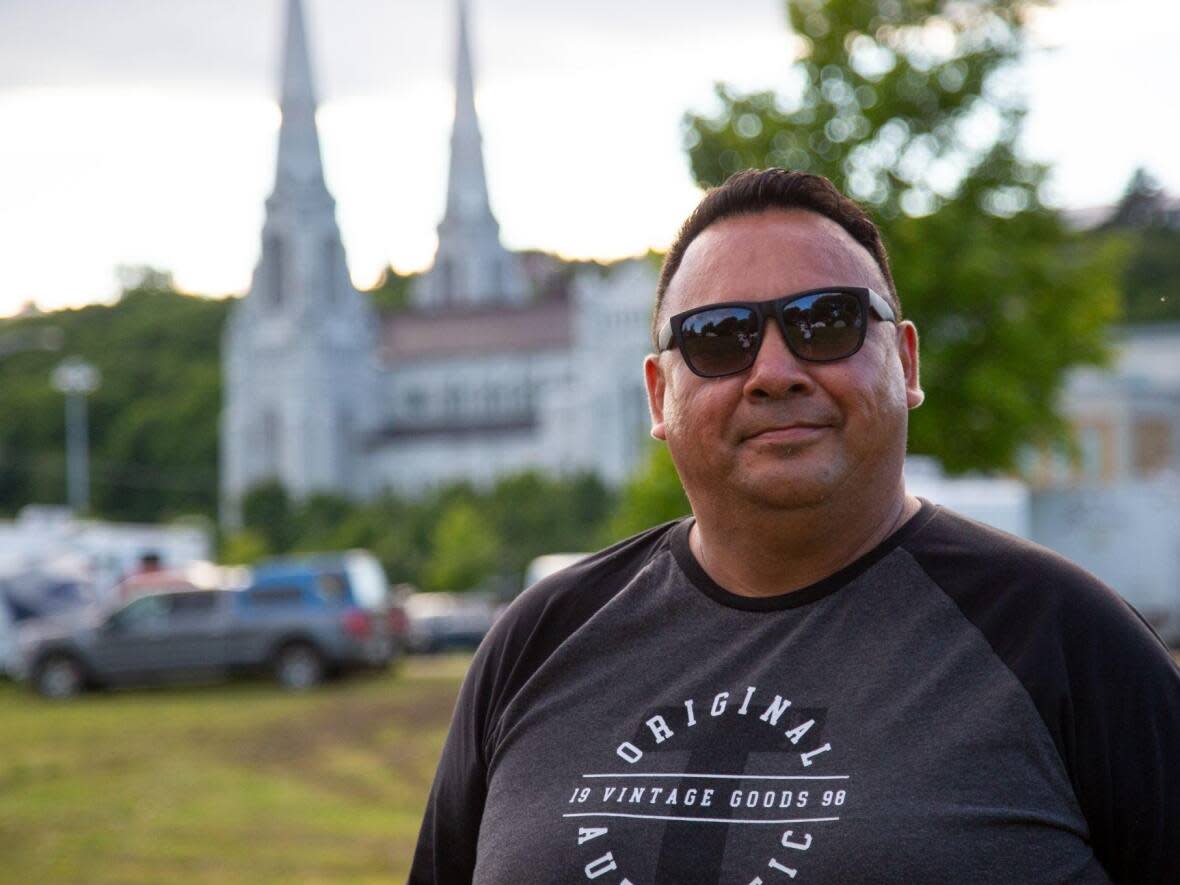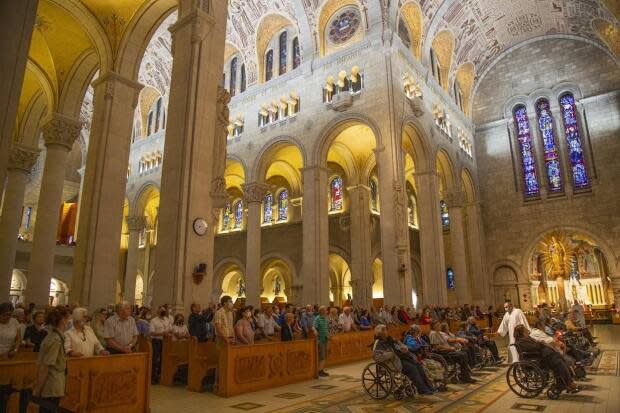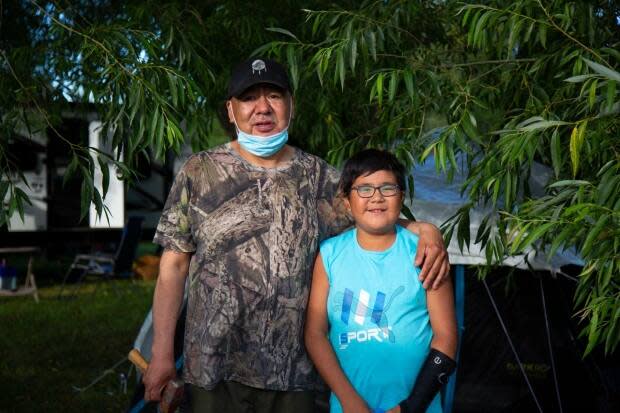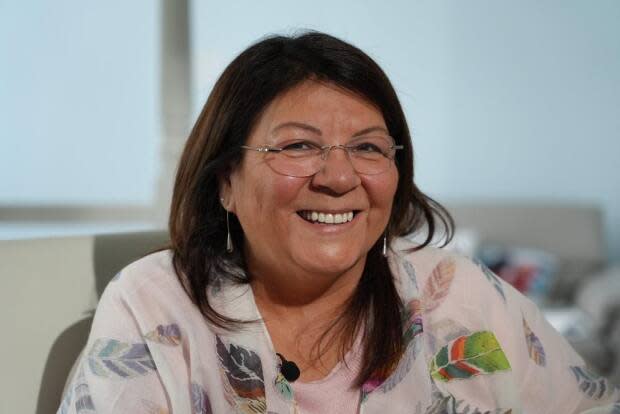Sainte-Anne-de-Beaupré pilgrimage comes with complex feelings for Indigenous Catholics

In just two days, Pope Francis will hold a mass at the Sainte-Anne-de-Beaupré Basilica, about 30 kilometres northwest of Quebec City.
The basilica, a national shrine with high, vaulted ceilings, is especially significant to Indigenous Catholics in Quebec.
For a century, the faithful have made a pilgrimage to the basilica to mark the feast day of St. Anne, following nine days of prayer, or novena, that concluded this year with a mass at the basilica on Monday.
"Since I don't have any grandmothers, I never knew my two grandmothers, [St. Anne] is my grandmother," said Andrée Paul, an Innu from Pessamit in Quebec's Côte-Nord region who now lives in Quebec City.
Paul has been volunteering at the basilica for almost 30 years. She helps with translation and co-ordination during the pilgrimage and as a trained nurse will be part of a medical team during the Pope's visit.
She says the novena celebration is "a bit of a heaven on earth," and that seeing Indigenous and non-Indigenous faithful coming together brings her great joy.

As grandmothers often deliver messages between households, she says St. Anne — the grandmother of Jesus — is particularly significant to Innu communities.
"I think the good St. Anne has always been part of the spiritual life of Indigenous peoples, maybe since the arrival of the clergy," said Tania Courtois, an Innu from Eukanitshit in the Côte-Nord region of Quebec who made the journey.
"Innu pray a lot to her."
A complicated relationship
This year's pilgrimage, as hundreds of Innu and other Indigenous people are at the Domaine Sainte-Anne campground near the basilica, comes the same week that the Pope is in Canada. On Wednesday he arrives in Quebec City, where the theme of his visit is reconciliation.
And it comes after a year where more than 1,000 potential unmarked graves have been detected at the sites of several former residential schools — many run by Catholic priests — with searches still continuing today.
Jean-Guy Malec, an Innu from Nutashkuan, said the discovery of the unmarked graves shifted his perception of the Catholic clergy.
"My faith in God hasn't changed," he said. "I believe in God, but I have a different opinion now on the humans [who work for the church]."
Malec said while he is happy that the Pope is coming to Canada to apologize to Indigenous people, he personally isn't that moved by his visit.

Abraham Chemaginish, a Naskapi from the community of Kawawachikamach, says he has mixed feelings about going into the basilica.
"I didn't have that last year," he said.
He's staying for the Pope's visit, but is not sure exactly what he's looking or hoping for.
"He comes to Canada to ask for forgiveness," he said. "They're still finding kids. It's not going to happen just like that, to forgive."
An emotional journey
Rhonda Simon, from the Eskasoni Mi'kmaq Nation in Cape Breton, N.S., is a descendant of residential school survivors. She made the trip to Sainte-Anne-de-Beaupré for the novena, like she does every year.
Her grandmother and her great-uncle were both forced to attend residential school, but only her grandmother made it back home. Her family still doesn't know what happened to her great-uncle.
Yet Simon remains faithful, just like her grandmother was all her life.
The trip is an emotional time for Simon, as she would make the journey with her grandparents when she was a child.
"This is where I feel like my grandparents are," she said.

Paul knows many Indigenous people have a complicated relationship with Christianity or have rejected it altogether — choosing to follow traditional spiritual practices instead because of the abuses linked to the church.
And while she is very religious and excited to meet the Pope herself, she knows not everyone feels that way.
But she hopes they can take the Pope's apology as a first step in choosing how they continue on with their faith.
"What I hope is that each person will at least have gotten through that step," she said.
Support is available for anyone affected by their experience at residential schools or by the latest reports.
A national Indian Residential School Crisis Line has been set up to provide support for former students and those affected. People can access emotional and crisis referral services by calling the 24-hour national crisis line: 1-866-925-4419.
Mental health counselling and crisis support is also available 24 hours a day, seven days a week through the Hope for Wellness hotline at 1-855-242-3310 or by online chat at www.hopeforwellness.ca.


